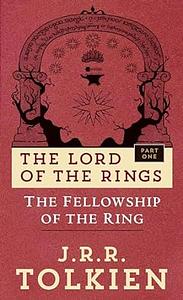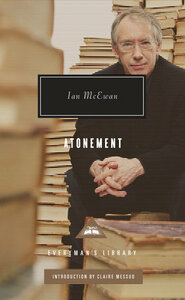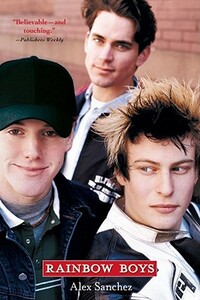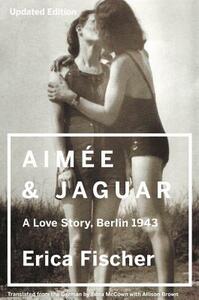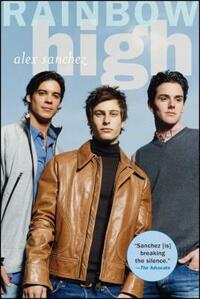You need to sign in or sign up before continuing.
Take a photo of a barcode or cover
matt_and_cheez's Reviews (493)
A little tough to get through at first, but a very in depth and interesting read. Probably the first highly famous fantasy tale, The Fellowship of the Ring is a book everyone should at least attempt in their lifetime. I will definitely have to read this one again because I don't think my 7th grade self really appreciated all that Tolkien has to offer.
Set in Victorian England, Fingersmith tells a story of two young women and a complicated plot to steal a fortune. Susan Trinder is an orphan who has been brought up by thieves. Her life changes when a family friend "Gentleman" pulls her into a devious plan to swindle a fortune out of a young woman, Maud, who lives with her cruel uncle. Susan soon becomes Maud's maid and waits as the trap is set to lure Maud into a marriage with Gentleman that will end in her detainment in a mental institution. Problems arise, however, as Susan becomes emotionally attached to Maud and the two girls fall in love. Filled with plot-twists, betrayal, and sometimes disturbing revelations, Fingersmith is a very worthwhile read for those who enjoy the gloomy setting of English countryside and the proper yet perverse language and manners of Victorian era Britons.
What I especially found intriguing about this novel was the way in which Waters presented Maud and Susan's relationship. This book presented same-sex love as any other novel would a heterosexual relationship. I found this odd at first, especially for that time period when I'm sure anyone with feelings for the same sex would be frightened of the consequences. The characters do not spend time questioning themselves, they just acknowledge that they are in love. I found this book very suiting for the current state of the fight for marriage-equality with the message "love is love" and there isn't anything deviant or special about same-sex relationships. In fact, their love, while key to the story, is just another component of the plot, rather than the sole focus.
What I especially found intriguing about this novel was the way in which Waters presented Maud and Susan's relationship. This book presented same-sex love as any other novel would a heterosexual relationship. I found this odd at first, especially for that time period when I'm sure anyone with feelings for the same sex would be frightened of the consequences. The characters do not spend time questioning themselves, they just acknowledge that they are in love. I found this book very suiting for the current state of the fight for marriage-equality with the message "love is love" and there isn't anything deviant or special about same-sex relationships. In fact, their love, while key to the story, is just another component of the plot, rather than the sole focus.
I found this story to be really inspiring. I did not know much about transgender issues until the author of this book, Ryan Sallans, came to speak at my school. I was able to talk to him in person and his story is very touching. I am giving his book three stars because the writing style was cheesy at times, with too many references to the smells/sounds, etc. at the beginning of each chapter. I don't like when an author puts too much description, it just seems like they are using strategies they learned in intro-writing classes. Other than that though, I found his description of his transition from female to male very well-written and explained. I think it is a worthwhile read for anyone who is interested in LGBTQ issues, and/or does not fully understand the trans* community.
In Atonement, McEwan investigates the nature of action and consequence, and of regret and guilt. Set in WWII England, McEwan portrays the uncertainty of the era through the deeds of the then teenager Briony Tallis. After reading a love note addressed to her older sister from a childhood friend Robbie, and then witnessing their sensual confrontation in the library, Briony frames Robbie and sends him to jail. The resulting consequences of this one evil act resonate through the rest of the story.
Part two of the story was my least favorite. It greatly details Robbie's service in WWII and his hatred for Briony. I don't like reading about war, so I struggled with this part of the novel.
Part three describes Briony's part in the war, a much more interesting (to me) portrayal. She is a war nurse and McEwan gives a really good insight into the lives of a WWII nurses. I didn't realize how many rules they had to follow and just how strict protocol was. Here, Briony's regret is described and she goes to visit her older sister, who now despises her. She makes as best of amends as she can, and the main story ends here.
Part four is the epilogue, told almost 60 years later. Briony visits her childhood home after being diagnosed with dimensia, and is surprised to see a portrayal of a play she wrote as a child.
Briony as a character is very complex. She aspires to be a writer, and is rejected in the middle of the novel by a literary magazine. She uses writing to escape from the harsh reality of the war and of her evil childhood act. As a reader, I still don't know if I feel sorry for her, or if I am angry at her action and the suffering it caused.
All in all, this book was very well written, but again, war stories aren't for me. I'm glad it wasn't just from the perspective of a soldier. I've read several war books and it's all the same, the horrible, bloody happenings during battle and the intense need to survive.
Part two of the story was my least favorite. It greatly details Robbie's service in WWII and his hatred for Briony. I don't like reading about war, so I struggled with this part of the novel.
Part three describes Briony's part in the war, a much more interesting (to me) portrayal. She is a war nurse and McEwan gives a really good insight into the lives of a WWII nurses. I didn't realize how many rules they had to follow and just how strict protocol was. Here, Briony's regret is described and she goes to visit her older sister, who now despises her. She makes as best of amends as she can, and the main story ends here.
Part four is the epilogue, told almost 60 years later. Briony visits her childhood home after being diagnosed with dimensia, and is surprised to see a portrayal of a play she wrote as a child.
Briony as a character is very complex. She aspires to be a writer, and is rejected in the middle of the novel by a literary magazine. She uses writing to escape from the harsh reality of the war and of her evil childhood act. As a reader, I still don't know if I feel sorry for her, or if I am angry at her action and the suffering it caused.
All in all, this book was very well written, but again, war stories aren't for me. I'm glad it wasn't just from the perspective of a soldier. I've read several war books and it's all the same, the horrible, bloody happenings during battle and the intense need to survive.
I don't normally read YA lit, but my summer reading theme is LGBTQ issues and I want to cover as many genres as I can. Given the advances in the fight for equal rights including President Obama's open support, I think it's appropriate to read up on this part of the human experience.
Rainbow Boys has characters that are stereotypical of a high school setting (jock, nerd, bullied outsider) but these characters are very believable and each given their own unique voice. I think Sanchez did a very good job in displaying a wide range of problems that gay teens often face. While the book had the requisite cheesiness of any YA novel, I found it to be one of the better ones that I've read. Since this novel was published in 2001, it would be interesting to see it set just a decade later after so much progress has been made.
Rainbow Boys has characters that are stereotypical of a high school setting (jock, nerd, bullied outsider) but these characters are very believable and each given their own unique voice. I think Sanchez did a very good job in displaying a wide range of problems that gay teens often face. While the book had the requisite cheesiness of any YA novel, I found it to be one of the better ones that I've read. Since this novel was published in 2001, it would be interesting to see it set just a decade later after so much progress has been made.
As with any WWII story involving a Jewish person living in Germany, it's bound to be sad. I felt connected to the characters, but the author's style really made this a tough read. The story was set up like a documentary, only in book form. There would be bits of prose, excerpts of diaries and letters and then straight dialogues from interviews. These elements were not synthesized in a way that made reading it enjoyable.
This is a story of a young German mother who meets a Jewish woman and begins to house her. They fall in love rather quickly, since Elisabeth (or Lilly, or Aimée) was unhappy in her marriage to a Nazi soldier. Felice (or Jaguar), the illegal Jew, lives happily with her lover until, of course, she is captured by the Gestapo. The struggles that follow, and Lilly's brave attempts to help Felice make up the bulk of the story. Reading about the lives of Jews in Nazi-era Berlin was of course depressing, but the most chilling part of this read came at the very end, where the author describes the living conditions of a hopeless, possibly deranged Lilly in her old age.
Perhaps a WWII enthusiast would better enjoy this book, but again the writing style just didn't do it for me.
This is a story of a young German mother who meets a Jewish woman and begins to house her. They fall in love rather quickly, since Elisabeth (or Lilly, or Aimée) was unhappy in her marriage to a Nazi soldier. Felice (or Jaguar), the illegal Jew, lives happily with her lover until, of course, she is captured by the Gestapo. The struggles that follow, and Lilly's brave attempts to help Felice make up the bulk of the story. Reading about the lives of Jews in Nazi-era Berlin was of course depressing, but the most chilling part of this read came at the very end, where the author describes the living conditions of a hopeless, possibly deranged Lilly in her old age.
Perhaps a WWII enthusiast would better enjoy this book, but again the writing style just didn't do it for me.
Again, Sanchez succeeds in presenting the struggles of being gay in an intolerant society. But he is also successful at presenting the characters as any "regular" teenager, with romantic struggles, college worries and family issues. Again, I think this series is important for anybody to read, particularly young adults, as it bridges the gap between what people think, and what is the truth. A very rewarding sequel to Rainbow Boys.
Since falling in love with Madonna's music a few months ago, I felt the need to read up on her life. Andrew Morton writes very clearly and with just enough detail, and his British perspective made the book all the more interesting. He makes you fall in love with, pity, and sometimes despise Madonna. Since she is so out-there and versatile in her work, the range of emotions and viewpoints this book presents is appropriate. The con to the book is that it was published in the early 2000s so I think a sequel is in order.
